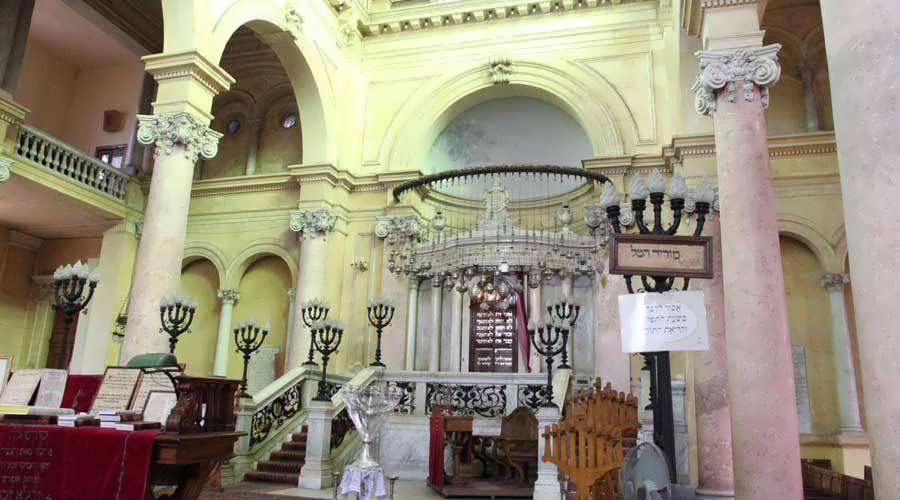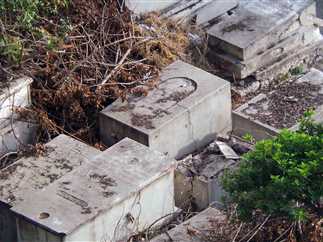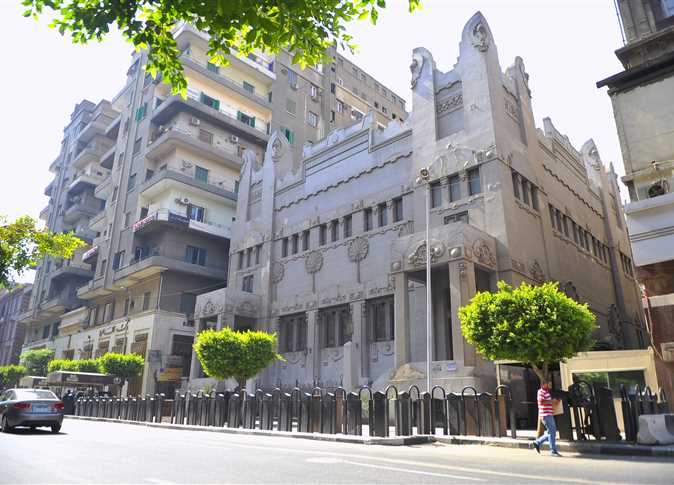
Sami Cohen takes his phone out and tries to call his friend Hussein, who lives in Cairo. Hussein does not answer on his home number. It is a holiday in Cairo — he is probably out with his relatives to celebrate.
Calling Cairo is an index of Cohen’s past mixed with his present. He is an Egyptian Jew living in Israel. He was born in Egypt in 1943, in the neighborhood of Haret al-Yehud in Old Cairo, and like many, had to flee during war between the two countries.
“I went to school between Ataba al-Khadra [the Green Square] and Al-Azhar. Now the square is not green anymore, it’s just a square,” says Cohen, remembering his school days. Cohen and his siblings were raised in an area where most residents were Muslim.
The former British colonial city of Aden, in today’s Yemen, was where his father was born. He immigrated to Egypt at the end of the 19th century to work in the tailoring business; he passed his British citizenship on to his children while raising them in Cairo.
Zionist ideology was very much present in the Cohen family. When Cohen was a child, they would gather in front of the radio to listen to the news coming from the newly created Jewish nation. Like other Jews who resided in Arab countries, Cohen’s family never thought of leaving Egypt despite the creation of the state of Israel.
“Despite our sense of belonging, Jewish people as a minority were always afraid in Cairo. We tried to keep quiet, not to attract attention. We were trying not to make noise,” he says.
After the 1956 tripartite aggression on Egypt, insults and threats to Jews became more frequent, especially in Muslim neighborhoods such as Al-Azhar, where the Cohen family used to live.
But a general resentment toward foreigners residing in Egypt began to grow after 1956.
“We were not sent away or harassed because we were Jewish, but because we were foreigners. A big percentage of the Jews present in Egypt had a foreign nationality, and consequently, many of those who became refugees were Jews,” Cohen points out. “We had Egyptian nationality, but they took it away and forced us to leave. People called us ‘British Zionist Jews’ — it was a very hard time,” Cohen explains with a melancholic tone.
“We were given one week to leave the country. Egyptian police stayed outside our door and did not allow us to leave the house. They closed my father’s shop and put him in jail for two days,” he says.
Cohen explains how their Muslim neighbors went to the Mugamma, Cairo’s administrative hub in Tahrir Square, to try to prolong their stay.
“We stayed another two months in Cairo, then we left on a boat to England,” he says.
After disembarking in the Greek port of Piraeus, Israeli immigration officers were waiting for Jewish families.
“They asked us why we were going to London and proposed we go to Israel instead. They offered us a house and a new nationality. And we accepted,” Cohen recounts.
The arrival in Israel was shocking for the Cohen family. They all had to share one room, they had no running water or jobs, and they had left their belongings behind.
In Egypt they were rich and part of the high society of Cairo. In Israel, they were no one — just another refugee family.
“My mother went from being a madame in Cairo to being a servant in Israel. It was a disaster,” Cohen recalls.
As his sister Mary explains, “It was too much for my father to take. The transition was a big shock. He also had diabetes. He passed away shortly after we arrived in Israel.”
For the Cohen family, the integration process into Israel was difficult. Israel was founded by Ashkenazi Jews, and there was little space for Jews from Arab countries. Cohen’s mother focused her resources into giving them a good education in Israel. It was the only way up for non-European immigrants.
Meanwhile, there was a sense of pride in being a Jew hailing from Egypt, as opposed to elsewhere in the Arab world.
“Egyptian Jews consider themselves higher-class immigrants than Jews from other Arab countries. When they say they come from Egypt, you can feel the pride in their voices,” says Yuval, an Israeli with Eastern European roots.
Now that he is settled in Israel, Cohen often thinks of Egypt.
Since he left Cairo at age 14, he has visited some 30 times. In the past two years however , he has not travelled to Cairo because of the rising tensions with Israel.
“My friends are afraid to meet me, and they would certainly not travel to Tel Aviv to see me,” he says.
When he is in Egypt, he says, he feels as if he never left.
“It was as if I had stayed to live there all these years. Everything looks the same, only dirtier and more crowded,” he says, smiling.
During the 1973 war, Cohen was one of the soldiers who came almost 100 kilometers diistance from Cairo.
“I could not believe I was so close to Cairo. I felt a really strong force pulling me toward the place I came from, I wanted to go there and see my house,” he says excitedly.
His voice fills with frenetic energy when he remembers the temporary shift of the Israeli border.
“I wanted to take off my uniform and put on Egyptian clothes to reach Cairo. It was unbelievable, like a dream. I was going crazy,” he recounts, discussing a tormenting moment of being both the enemy and its adversary in a single shot.
But Cohen and his family relate to Egypt as a house of memory rather than an incubator of identity.
He says he feels he belongs to the Middle Eastern region more than to a specific country.
“I have an Oriental mentality, but I cannot consider myself Arab. We are Jews, and this is our identity. I like Arab music, the mentality and attitude, but I do not describe myself as Arab,” he explains.
Cohen does not consider himself Arab, even though he comes from an Arab country.
“For Jews today, the word Arab refers to Muslims and Christians. I have an Arab heritage, of course, but my identity is Jewish. For the moment we, the Jews, accept to be Jewish as a nationality and as a race,” he says.
He says he would not go back to live in Egypt.
“It is impossible for an Israeli because no one would rent me a flat. It’s not because I am Jewish, it is because I am an Israeli,” he says.
That said, cultural affinity with Egypt’s memory drives many of the Cohens’ daily life habits in Israel.
For one, they like to mingle with Israelis of Palestinian descent, commonly known as the Arabs of 1948.
“I used to go to Arab villages and have coffee, to chat in Arabic and feel connected to people who are similar to me in their culture and language,” explains Mary.
She captures the complexity of her past in Egypt past and present in Israel.
“I love Egypt very much, even today. Now I am afraid to go there even though I really want to. My life, home and heart are in Israel, but I have strong feelings and emotions related to the memories in Egypt,” Mary Cohen points out.
Cohen’s Egyptian friends living in Cairo tell him how they feel about his identity.
“They tell me I was born in Cairo. They say Israel is only the place where I live, and for them I am an Egyptian,” he says.
His sister echoes that feeling.
“Egypt is where my life began; it shaped my mentality and who I am. The combination of Jewish and Egyptian roots merged during my childhood. These are the Egyptian memories I carry with me,” she says.




